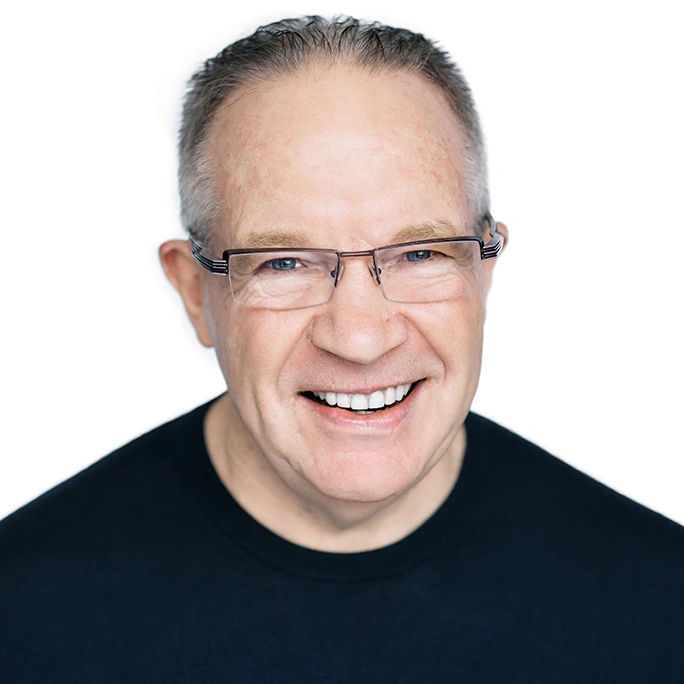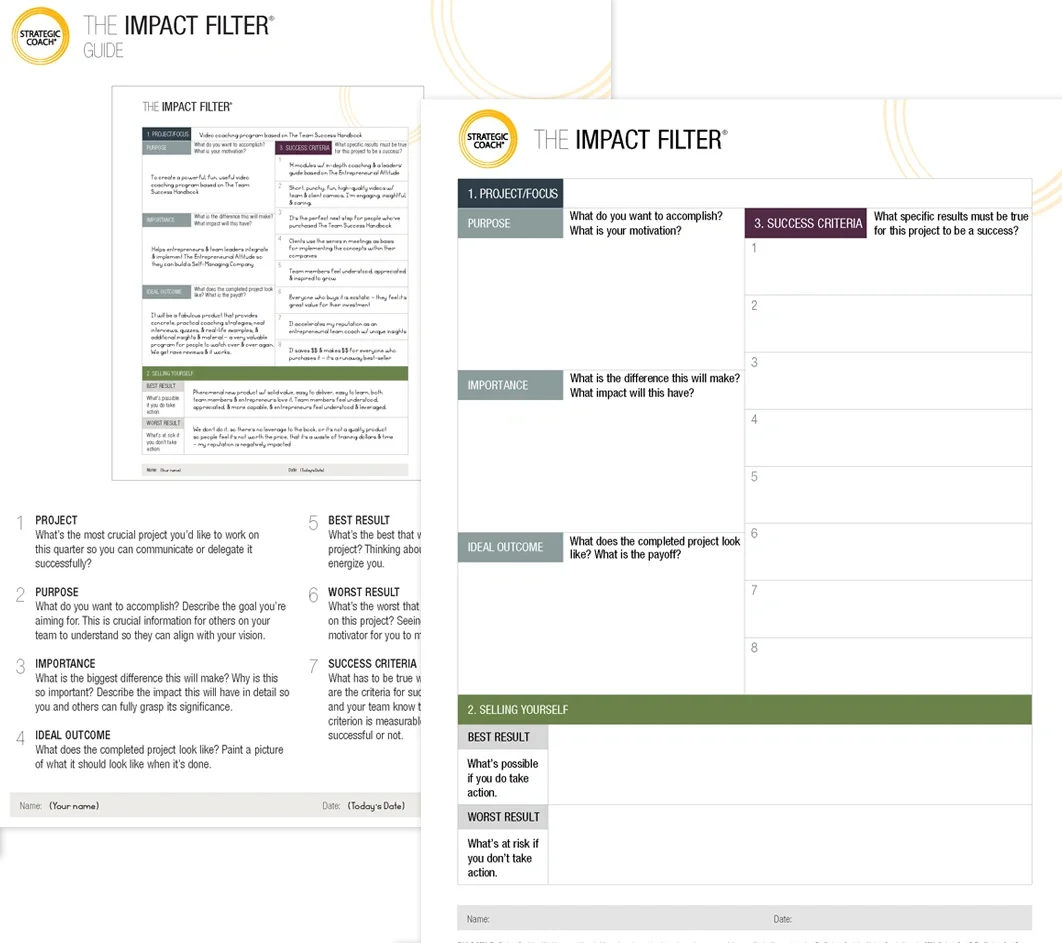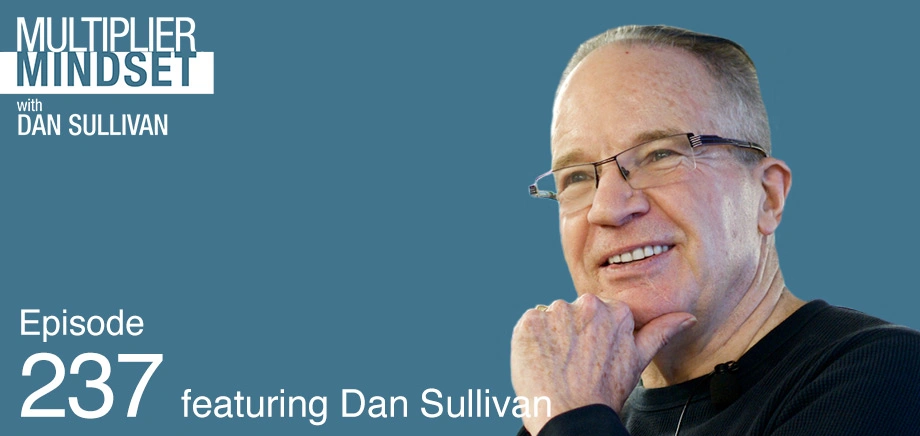Four Signs You Were Born To Be An Entrepreneur
August 20, 2025
Hosted By
 Dan Sullivan
Dan Sullivan
Can you spot entrepreneurial traits in yourself or in your children? In this episode, Dan Sullivan reveals the telltale signs of a true entrepreneur, from early money-making initiatives to a deep craving for freedom. Learn why credentials pale in comparison to creative shortcuts and why results (not methods) are what set entrepreneurs apart in every stage of life and business.
Here’s some of what you’ll learn in this episode:
- How the entrepreneurial spirit and mindset shows up in children.
- Why entrepreneurs can’t work for someone else.
- How entrepreneurs’ priorities set them apart from most people.
- How entrepreneurs approach education with a unique perspective.
Show Notes:
Many entrepreneurs show entrepreneurial instincts as early as age 10 or even younger.
A key early sign is wanting to control your own money-making, even before adulthood.
Entrepreneurs often find working for others unfulfilling once they realize their earning potential is directly tied to their ambitions.
The money an entrepreneur makes is just a function of their ambitions, skills, and usefulness.
There’s no single personality type or special skill that makes someone an entrepreneur.
Freedom is always more important to entrepreneurs than security.
The true reward for entrepreneurism isn’t money itself but the freedom it provides.
It’s commonly believed that advanced degrees or credentials are needed for business, but many entrepreneurs prove otherwise.
Entrepreneurs are always creating shortcuts for themselves and getting paid for creating shortcuts for others.
Entrepreneurs live in a world where the only thing that matters is results, not the methods used to achieve them.
Resources:
The 4 Freedoms That Motivate Successful Entrepreneurs
Episode Transcript
Dan Sullivan: Hi, this is Dan Sullivan. I'd like to welcome you to the Multiplier Mindset Podcast.
A lot of entrepreneurs ask me, and it's usually not about themselves, it's actually usually about their children. They ask me, how do you know if someone's an entrepreneur or not? And so my entrepreneurs are usually individuals with a lot of entrepreneurial experience, you know, 10, 20 years. And a lot of them, you know, they're becoming an entrepreneur started very early. And by early, I mean, 10 years old, maybe sometimes even younger than 10 years old. you know, where the other kids were out playing or they were entertaining each other and this particular individual was already figuring out how to make extra money and all sorts of ways that are available when you're a kid.
And I'm one of them, you know, I was mowing lawns and, you know, I was a paper boy and I was a caddy. I remember when I was 15 years old, a local golf course, I caddied double bag for 36 holes on Saturday and I did it again on Sunday. Okay, and anybody who's played golf, first of all, hardly anybody uses caddies anymore because everybody's got electric carts. But you carried heavy bags and you had to pay attention to which club this golfer needed and that golfer needed. But I remember with the fees, you had to pay fees, and the tips that I got, that in two days I made more money than my father made that week. And I always remember that when I was 15. I didn't rub it in, but I wasted the money shamelessly after I got it.
But it proved a point to me that things I put my mind to, I could make money. And I've always had really good ability to find ways of making money. And I think that's a key that entrepreneurs, I think from a standpoint of wanting to be in control of money-making is a very, very early key that you're an entrepreneur. And the reason is if you get really good at it, working for someone else probably isn't going to satisfy your goals. You're going to have a sense that on my own I can create a business and I can get my own customers. The amount of money I make will be just a function of my ambitions. my skills, and my usefulness. I have to be really useful. So I think that's a real sign.
And another one is your, what I've noticed, like I'm talking from almost 50 years now of coaching entrepreneurs, and I will have been almost exclusively focused on coaching entrepreneurs. So, you know, I've coached a lot, 6,000 or so. And they're very different from each other. There's no personality type. There's no particular skill that identifies an entrepreneur. But I think one thing is that freedom is always more important to you than security—that if you have a choice between something that's really secure or something that you're free to make it be what you want it to be, you choose freedom.
And in Coach, of course, we have The Four Freedoms: freedom of time, freedom of money, freedom of relationship, and freedom of purpose. We put an emphasis on The Four Freedoms simply because that's how entrepreneurs really get paid. Money is a means, but the real goal is the freedom that money actually gives you. So I said that there's this thing of creating your own money-making from an early age, and then the other thing is the tendency to always favor freedom over security.
And where that really shows up is in education. And the reason is that a lot of people believe that they can't go into the marketplace until they've got very advanced education and they have certifications and they have credentials. And then they can go into the marketplace and they'll be rewarded on the basis of their education. And I think entrepreneurs generally bypass that altogether. They don't see that as meaningful. And I'm not saying they bad mouth education.
I was thinking about this recently, that in last 32 years where we've had the workshop Program, I can never remember any entrepreneur saying that they were successful because of their education. I never remember them talking about their education at all. And we have graduates from the supposedly most prestigious universities like Oxford in England and Harvard, Yale, Stanford, and these are the big universities. And it's only maybe after four or five years that you found somebody who went to graduate school at Harvard and has advanced degrees. And they never mention it. It's not something that they would ever talk about. And yet, in the non-entrepreneurial world, if you're working at a corporation, it's the first thing you talk about. You know, well, I graduated from Harvard.
But in the entrepreneurial world, it's like it was a wardrobe fashion that you wore 20 years ago, but you didn't keep the clothes. you know, that was out of fashion and it wasn't a big thing. And it's neither here nor there because when you ask them about their college education, they were splitting their time in the classroom with running a business that they had created out in the marketplace. So they got the grades to pass, they got the grades to graduate, but they just really didn't take the college experience.
So those three things I would say would be key indicators, and I'll give you a fourth that I've just thought about, and that is they're always creating shortcuts for themselves, and they're always getting paid because they create shortcuts for other people. Anything that people say, well, you know, to get here, you have to do this and this and this and this. And most entrepreneurs say, well, it's a good result to get to, but it takes you five steps, I can get there in three steps, you know? And so I think that there's a tendency to not want to buy into other people's methods at all, okay?
I was talking to Kathy Kolbe, you know, who of course created the wonderful Kolbe system where anybody can actually take a test and get a pretty good idea of how they organize themselves to get action and take results. She said the greatest friction in school systems today is where the teacher believes that what you're learning is the method she's teaching you, okay? And the students who give the teachers the most friction in their lives are the ones who say, well, I think it's a good result, but I'm not going to use your method. I've thought of a method that's a lot easier to get to the result. And it drives the teachers crazy because they believe that methods are the most important things. And entrepreneurs live in a world where methods don't matter, results matter.
So just to review what I've said here, early moneymaking; number two, freedom over security; number three, education credentials don't really matter; and number four, results are the only thing important. And the shorter the path to the result, the better. So that's how you know whether you're an entrepreneur or not.
Related Content
The Impact Filter®
Dan Sullivan’s #1 Thinking Tool
Are you tired of feeling overwhelmed by your goals? The Impact Filter is a powerful planning tool that can help you find clarity and focus. It’s a thinking process that filters out everything except the impact you want to have, and it’s the same tool that Dan Sullivan uses in every meeting.







